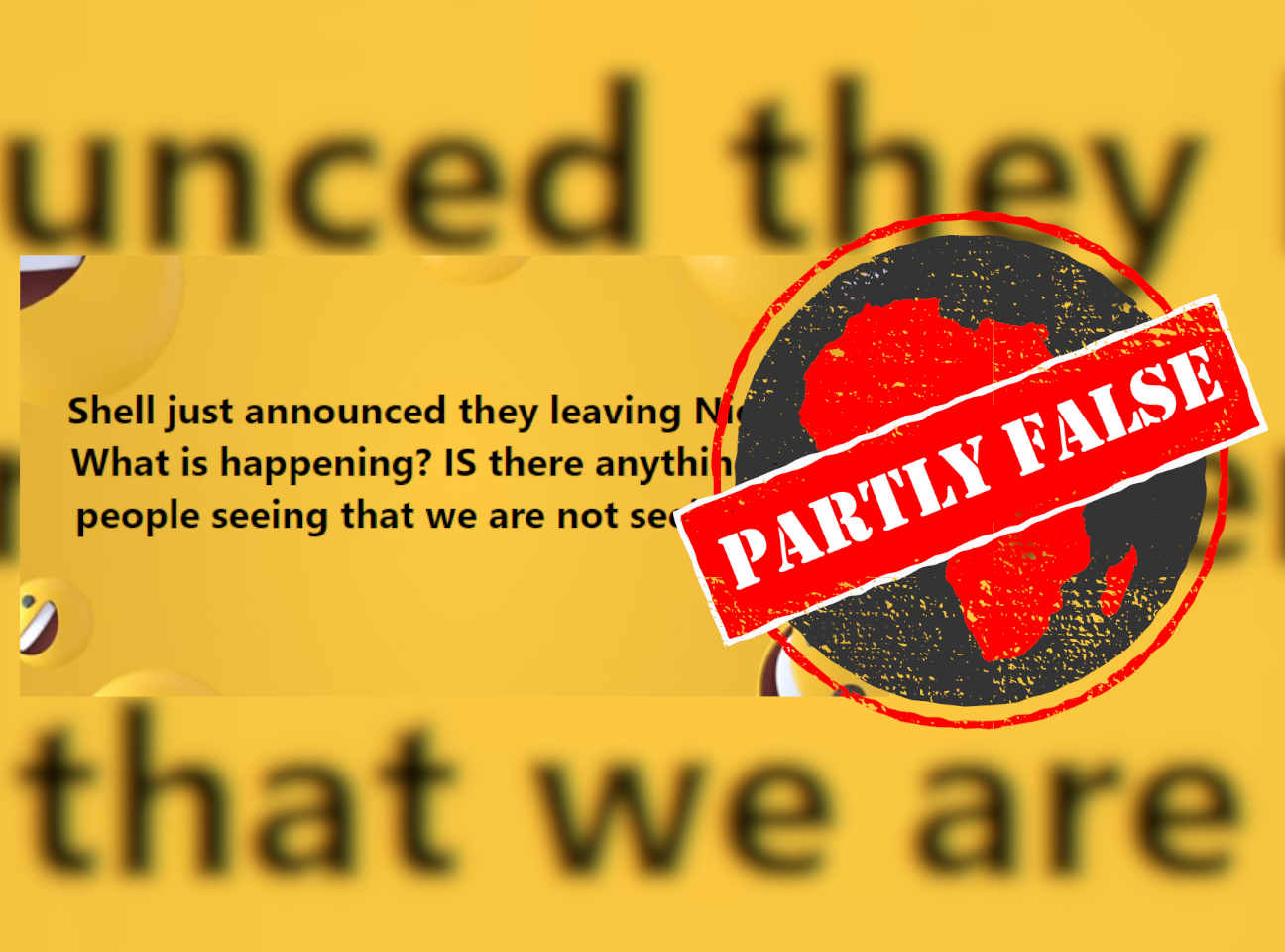IN SHORT: Shell did not announce it was leaving Nigeria. The international oil player is only selling its onshore oil production business.
Multinational oil company Shell has announced it’s leaving Nigeria, according to several posts on Facebook.
One 16 January 2024 post reads: “Shell just announced they leaving Nigeria. What is happening? IS there anything this people seeing that we are not seeing yet?”
Shell, officially Royal Dutch Shell plc, is an energy company headquartered in The Hague, Netherlands, and incorporated in the United Kingdom. The company is one of the largest oil and gas companies in the world.
As at December 2023, over 6,000 jobs were lost in Nigeria, because of significant companies such as Procter & Gamble, Unilever, GlaxoSmithKline, Sanofi and Bolt Foods leaving the market or reducing their operations in the country. They have given reasons such as poor customer demand and currency issues.
Food prices rose in December, making inflation in Nigeria the worst it has been in over 27 years. The rising cost of living affects whether or not people can afford certain products.
Similar posts claiming Shell is leaving Nigeria can be found here, here, here, here, here, here and here. A post on X (formerly Twitter) was viewed by over 450,000 users.
But has Shell announced it's leaving Nigeria? We checked.

No, Shell not leaving Nigeria
On 16 January 2024, Shell made the announcement that it was selling the Shell Petroleum Development Company (SPDC) of Nigeria Limited, one of its onshore Nigeria subsidiaries, to a group of domestic and foreign businesses.
The company also noted that the completion of the deal was subject to the approval of the Nigerian government.
Several news reports have also reported the intention of Shell to let go of its onshore oil production business in Nigeria. Onshore oil business refers to the extraction of crude oil that is land-based.
Former chief executive officer, Ben van Beurden, announced in 2021 that the company was in talks with the Nigerian government to sell its onshore production business to local companies. Van Beurden said pipeline theft, sabotage, and operational issues were some of the reasons given.
The company further explained that it had three other operations in Nigeria, namely Shell Nigeria Exploration and Production Company Limited, Shell Nigeria Gas Limited and Daystar Power Group. So the company is not leaving Nigeria, but only withdrawing one of its businesses.
False information about a major oil player leaving an oil-producing country could have significant economic implications. Fact-checking ensures that people have access to accurate information, preventing unnecessary panic among citizens.
Republish our content for free
For publishers: what to do if your post is rated false
A fact-checker has rated your Facebook or Instagram post as “false”, “altered”, “partly false” or “missing context”. This could have serious consequences. What do you do?
Click on our guide for the steps you should follow.
Publishers guideAfrica Check teams up with Facebook
Africa Check is a partner in Meta's third-party fact-checking programme to help stop the spread of false information on social media.
The content we rate as “false” will be downgraded on Facebook and Instagram. This means fewer people will see it.
You can also help identify false information on Facebook. This guide explains how.


Add new comment